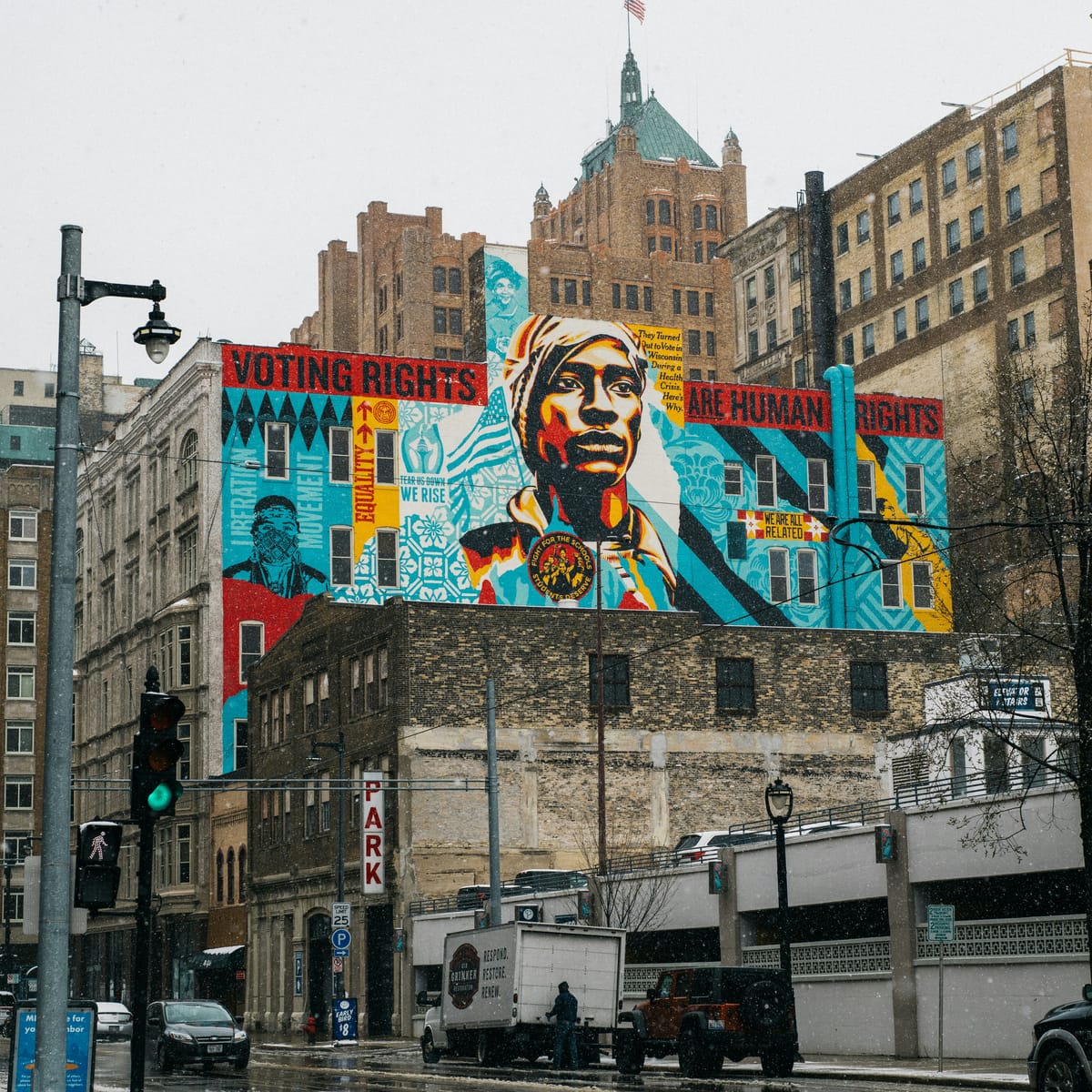Vote No on Questions 1 & 2 & 3 & ...
Wisconsin doesn't need to make it harder to vote.

For my out-of-state readers, forgive a Wisconsin-centric post. Sconnies, listen up!
No right-thinking person could be blamed for pressing out of their skulls the memory of the 2020 election cycle. The division and ugliness of the campaign was one thing. The aftermath of the campaign was quite another. But the election itself took place in the midst of the early stages of the COVID pandemic.
It was a chaotic time, especially in Wisconsin. At least for the spring elections, no one knew if there would even be in-person voting until the last moment. For the rest of the year, rules were made and unmade on the fly. Clerks and election officials scrambled to make the process as safe and efficient as possible, with uneven results.
In response to the mess, the GOP-led Wisconsin Legislature and the (former) conservative majority on the State Supreme Court decided...to make voting harder?
Well, that's not quite accurate. Lawmakers and justices weren't responding to the 2020 election. At least not directly. They were responding to the epic, years-long tantrum thrown by Donald Trump after losing the 2020 election. Among other things, they have tried to purge voter rolls, and abolish the State Election Commission.1 They have succeeded for now in banning ballot drop boxes and increasing burdens on absentee balloting.
Republicans' latest attempts involve adding restrictions on voting to the state constitution.
Lots of Questions
I'm ashamed to say I learned about this situation from Bolts magazine, rather than a local publication. But Bolts does have a very useful explainer of the situation. The short version is that two questions will be placed on the April election ballot:
- Question 1 would prohibit local election boards from accepting "Zuckerbucks." That's shorthand for assistance from outside groups, named after Meta CEO Mark Zuckerberg, who along with his wife Priscilla Chan funded an organization that provided logistical assistance to election boards in 2020. Because much of that help went to large urban areas, which are Democratic strongholds, Republicans have complained that it was used to "steal" the election.
- Question 2 requires "an election official designated by law" to "perform tasks in the conduct of primaries, elections or referendums." This sounds innocuous enough. But opponents charge that the proposed amendment is vaguely written, and could prevent election workers from calling in help, no matter how simple or uncontroversial the request.
The Legislature has also placed a related question on the November ballot, specifying that only U.S. Citizens are eligible to vote in Wisconsin elections.
There's a lot not to like about these proposals.
They duplicate laws already on the books, for one thing. That's done explicitly because amendments approved by voters cannot be vetoed by Democratic Gov. Tony Evers:
“The reason why it’s a referendum rather than a bill is because Gov. Evers would veto that bill,” [Retired Republican Sen. Kathy] Bernier, who also previously worked as a county clerk, says. “And so we let the citizens speak and make it a constitutional amendment. It would be a better provision to be by statute rather than the Constitution. But it is what it is.”
These amendments carry more than a whiff of racism. Complaints about Zuckerbucks being used in big cities usually try to skirt questions about race and the legitimacy of urban votes. But then Trump, as usual, goes and says the quiet part out loud.
Likewise, it is hard to read the November question as anything other than an attempt to close off participation in local elections by non-citizens while making it painfully clear that undocumented immigrants are to remain politically marginalized.
It's also hard to avoid the cynical conclusion that these initiatives were arranged to maximize Republican "juice" in this year's election cycle, ensuring passage of the first two amendments in low-turnout spring elections, and drawing in supporters of the third in November, when their votes will be needed the most.
It has been investigated and adjudicated again and again. No one stole the 2020 election from Donald Trump.
But all of this doesn't even get to the real point: Wisconsin doesn't need to make it harder to vote. It has been investigated and adjudicated again and again. No one stole the 2020 election from Donald Trump. There is no widespread voter fraud there are no plots to harvest absentee ballots from nursing homes or the inner cities, there is no line of immigrants eagerly awaiting their turn to warp elections to undocumented desires.
These tactics, and the many similar devices deployed by Republicans around the nation, come about for only one reason: they believe votes against the GOP are fundamentally illegitimate.
I have conservative readers, so I want to be clear that none of this is said lightly. But the story of election restrictions in the United States is almost entirely about making sure the "right" people — and only the right people — are able to vote.
As I say, there's a lot not to like about these proposals, but that last one should be enough. Vote no on Questions 1 and 2 in the spring primary. April showers make May flowers, but easy voting makes a democracy flourish.
Endnotes
1Longtime Wisconsin watchers will remember that the Wisconsin Election Commission was created to replace the highly-regarded Government Accountability Board when lawmakers decided the GAB wasn't serving Republican interests.